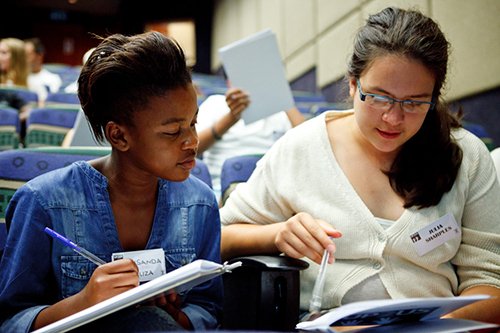
Societies with turbulent racial pasts face challenges and opportunities when shaping their country’s future. As we learned from Jonathan Jansen in my previous Global Search for Education article, education can play a critical role in bringing about positive change. Ensuring students are able to leave classrooms thinking more compassionately about each other, nurturing the skills which will help them make good choices, and enabling them to live as active and democratic citizens in a 21st century world, are all critical goals.
Over the last ten years, a South African education organization called Shikaya has been working with teachers to achieve these goals. Their core program, Facing the Past – Transforming our Future was developed in partnership with Faire face à l'histoire et à nous-mêmes and is now in its eleventh year. It has trained hundreds of teachers in hundreds of schools and impacted the lives of students all across the country.
Dylan Wray is the co-founder and executive director of Shikaya. He has been coordinating the Facing the Past – Transforming Our Future project since 2003. He joins me today in The Global Search for Education.

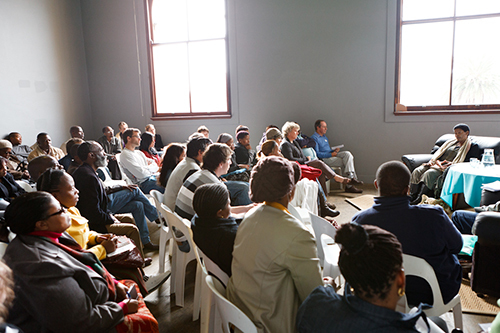
What do you see as the role of the teacher in preparing young people to be active and caring citizens?
Shikaya sees teachers as being at the very core of ensuring success in schools. The teachers decide how their students will learn in their classrooms. It is the teacher who creates the space within those walls where the students can think about their thinking and behavior, ou non. It is the teacher who shows his/her students through her own behavior, what it means to be compassionate and accepting of others different from themselves, ou non. It is the teacher who creates the opportunity for young people to practice democratic thinking and action. Or she doesn’t and leaves it to chance (or somebody else) that they learn and understand what it means to be an active democratic citizen.
Cette, bien sûr, is a big ask. Not only are we expecting improved grades from teachers, but we also expecting them to shape the values, thinking and action of the young people under their care. But I think we often forget that teachers are also people – many with different values. They also carry their own prejudices, fears and insecurities into the classroom alongside their strengths and passion. So if we are asking of teachers to be these citizen creators, we need to support them on a personal as much as a professional level.
What do you see as the role of the parent?
Parents are central in developing democratic habits. Recherche, par exemple, shows that if we include our children in our discussions about voting at election time and if we can actually take them with us to vote, they are more likely to vote themselves when they reach voting age. We took our three-year old sons with us to vote in our general elections just a few weeks ago. Beforehand we spoke about what we were going to do. They stood in line with us, looked over the ballot cards and watched as we made our choices. They were the ones who put the ballots in the ballot boxes for us. Just two days ago we drove past the voting station and we heard one of them say, “Regardez. That is where we voted.” They are learning the language and witnessing the act. By the time my boys are of voting age they will have had six more moments of voting with us. Six should be enough to develop a habit.

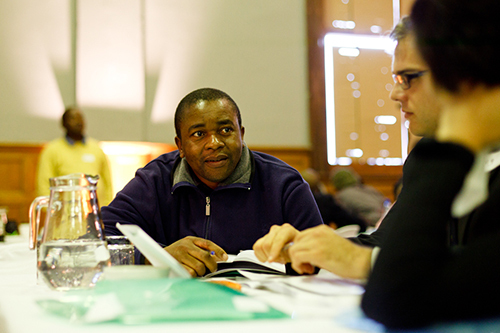
Can you speak a little about the work you are doing related to the Truth, Justice and Reconciliation Commission?
Three years ago Kenya began the Truth, Justice and Reconciliation Commission, which was formed to look into not only the post-election violence of 2007, mais aussi la période après l'indépendance. Une caractéristique particulière du processus était que presque 9000 enfants ont témoigné de leur expérience de la violence post-électorale et aussi autour des questions de la pauvreté, l'éducation et la violence sexuelle. Brave jeunes enfants tout le Kenya se tenaient devant les commissaires et raconté leurs histoires.
Moi-même et le Dr. Karen Murphy, le directeur international de Facing History and Ourselves, ont été invités par le Centre international de la justice transitionnelle pour créer un rapport de la TJRC aux enfants.
We have tried to create a version of the main report that is both a resource for children and also a tool for teachers and others working with youth in Kenya. Our intention has been to capture some of the stories that children shared with the TJRC in a way that asks the reader, whether she is a teacher or a young Kenyan, to think deeply about their own choices and behavior.
We are in the final stages of writing, having recently undertaken a validation process in Kenya with various stakeholders, including children, enseignants, principals and civil society. The response was overwhelmingly positive. We have some more to do to bring in the feedback we received from the Kenyan stakeholders, and we plan to release this children’s version mid-2014.

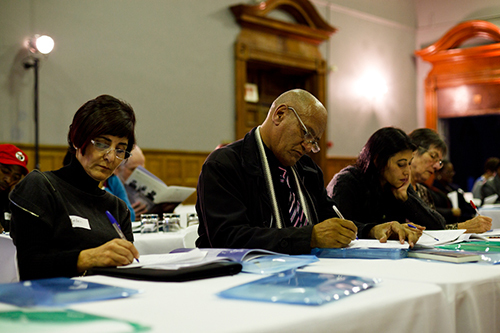
What are some of the best examples you have seen of school reform in South Africa?
One example comes from Jonathan Jansen, the Chancellor of Free State University who has already been featured in this series. He has recently published a very important book along with the filmmaker, Molly Blank. Their book, Comment réparer les écoles sud-africaine, looks at eighteen case studies of schools that are successful despite being over-crowded, in poor and remote areas, or are surrounded by schools that are failing. But these schools, for a variety of reasons ranging from the leadership of the principals to the quality and passion of the teachers, are succeeding. The book contains short videos of these schools as well as a workshop guide, which I was asked to create, that allows schools that want to learn from these stories to engage with them in their staff rooms as part of their professional development programs. The solutions and improvement strategies that emerge from these schools are relatively simple and, le plus important, ont été révélées efficaces dans les écoles qui font face à des défis très difficiles. Donc, si ces écoles peuvent le faire, alors vraiment, il ne ya aucune raison pourquoi toutes les écoles similaires à ceux-ci ne devraient pas être en mesure de réussir aussi bien. We have just begun an important initiative to work closely with schools across the country using the case studies from the 18 écoles succès comme outils de tournage autres écoles autour.
Combien accent a été donné à un grand leadership dans les écoles? Croyez-vous encore beaucoup à faire?
Il ya quelques années, Pam Christie, le doyen de l'éducation à l'Université de Cape Town, publié un joyau de la recherche appelé écoles That Work. Her research showed that the quality of principal leadership was essential to the success of a school, and in successful under-resourced schools, when the principal left, the school’s performance immediately dropped. The depth of leadership in the schools did not generally extend beyond the principal. This was in contrast to more well-resourced schools where a change in principal didn’t necessarily see a drop in performance. Si, of course we need to be investing in supporting principals, but we also need to develop the school management teams as a whole if we want success to be sustainable.
Of equal importance are the district, provincial and national management structures as well. Too many people in these leadership roles have not been given the proper support and training to run very difficult and complicated systems. We often talk about the visionary principals but we also need to start talking about, finding, nurturing and developing the visionary managers of this system.

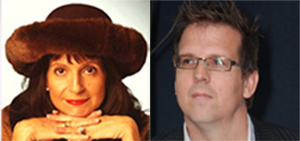
All photos are courtesy of Shikaya
For more information on Shikaya: http://shikaya.org/
Dans La Recherche globale pour l'éducation, joindre à moi et leaders d'opinion de renommée mondiale dont Sir Michael Barber (Royaume-Uni), Dr. Michael Bloquer (États-Unis), Dr. Leon Botstein (États-Unis), Professeur Clay Christensen (États-Unis), Dr. Linda Darling-Hammond (États-Unis), Dr. Madhav Chavan (Inde), Le professeur Michael Fullan (Canada), Professeur Howard Gardner (États-Unis), Professeur Andy Hargreaves (États-Unis), Professeur Yvonne Hellman (Pays-Bas), Professeur Kristin Helstad (Norvège), Jean Hendrickson (États-Unis), Professeur Rose Hipkins (Nouvelle-Zélande), Professeur Cornelia Hoogland (Canada), Honorable Jeff Johnson (Canada), Mme. Chantal Kaufmann (Belgique), Dr. Eija Kauppinen (Finlande), Le secrétaire d'Etat Tapio Kosunen (Finlande), Professor Dominique Lafontaine (Belgique), Professeur Hugh Lauder (Royaume-Uni), Professeur Ben Levin (Canada), Seigneur Ken Macdonald (Royaume-Uni), Professeur Barry McGaw (Australie), Shiv Nadar (Inde), Professeur R. Natarajan (Inde), Dr. PAK NG (Singapour), Dr. Denise Pape (États-Unis), Sridhar Rajagopalan (Inde), Dr. Diane Ravitch (États-Unis), Richard Wilson Riley (États-Unis), Sir Ken Robinson (Royaume-Uni), Professeur Pasi Sahlberg (Finlande), Professeur Manabu Sato (Japon), Andreas Schleicher (PISA, OCDE), Dr. Anthony Seldon (Royaume-Uni), Dr. David Shaffer (États-Unis), Dr. Kirsten immersive, (Norvège), Chancelier Stephen Spahn (États-Unis), Yves Thézé (Lycee Francais U.S.), Professeur Charles Ungerleider (Canada), Professeur Tony Wagner (États-Unis), Sir David Watson (Royaume-Uni), Professeur Dylan Wiliam (Royaume-Uni), Dr. Mark Wormald (Royaume-Uni), Professeur Theo Wubbels (Pays-Bas), Professeur Michael Young (Royaume-Uni), et le professeur Zhang Minxuan (Chine) alors qu'ils explorent les grandes questions d'éducation de l'image que toutes les nations doivent faire face aujourd'hui.
La recherche globale pour l'éducation communautaire page
C. M. Rubin est l'auteur de deux séries en ligne largement lecture pour lequel elle a reçu une 2011 Upton Sinclair prix, “La recherche globale pour l'éducation” et “Comment allons-nous savoir?” Elle est également l'auteur de trois livres à succès, Y compris The Real Alice au pays des merveilles, est l'éditeur de CMRubinWorld, et est une fondation perturbateurs Fellow.
Suivez C. M. Rubin sur Twitter: www.twitter.com/@cmrubinworld


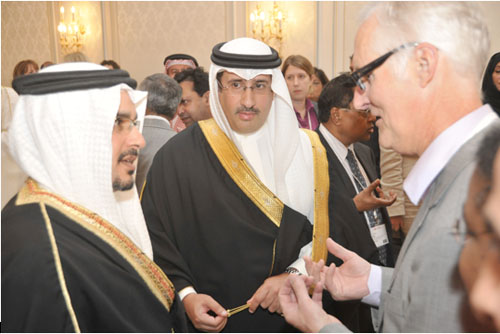
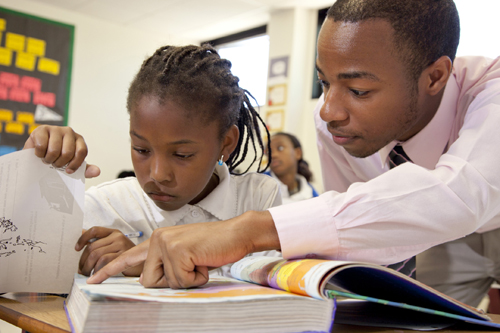
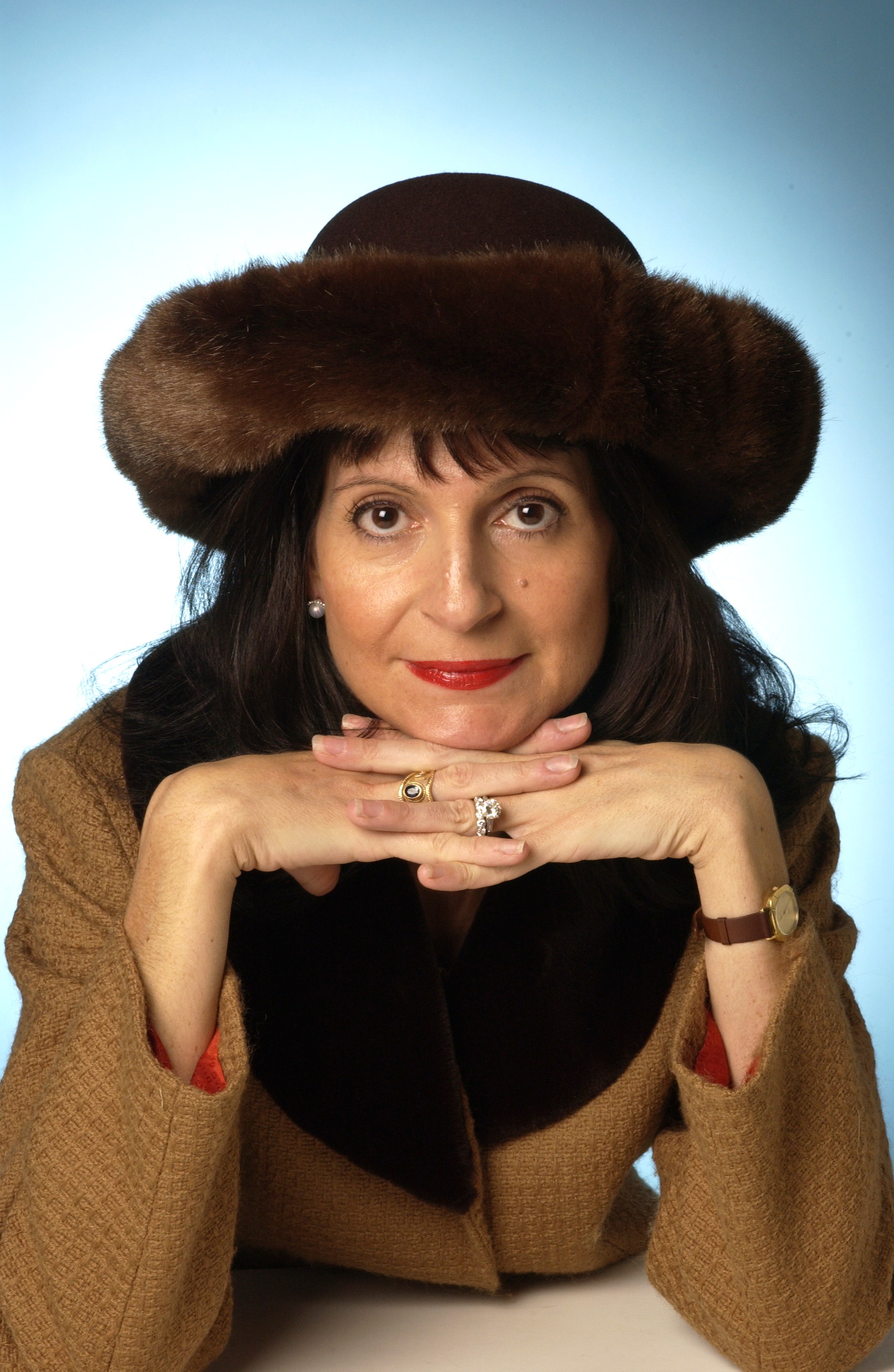
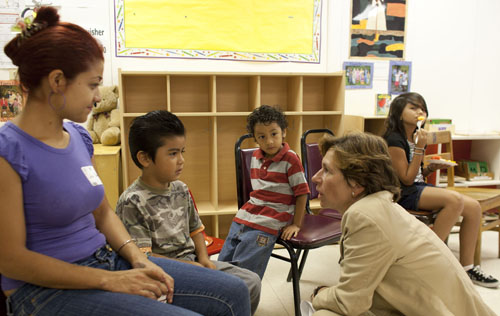
Commentaires récents